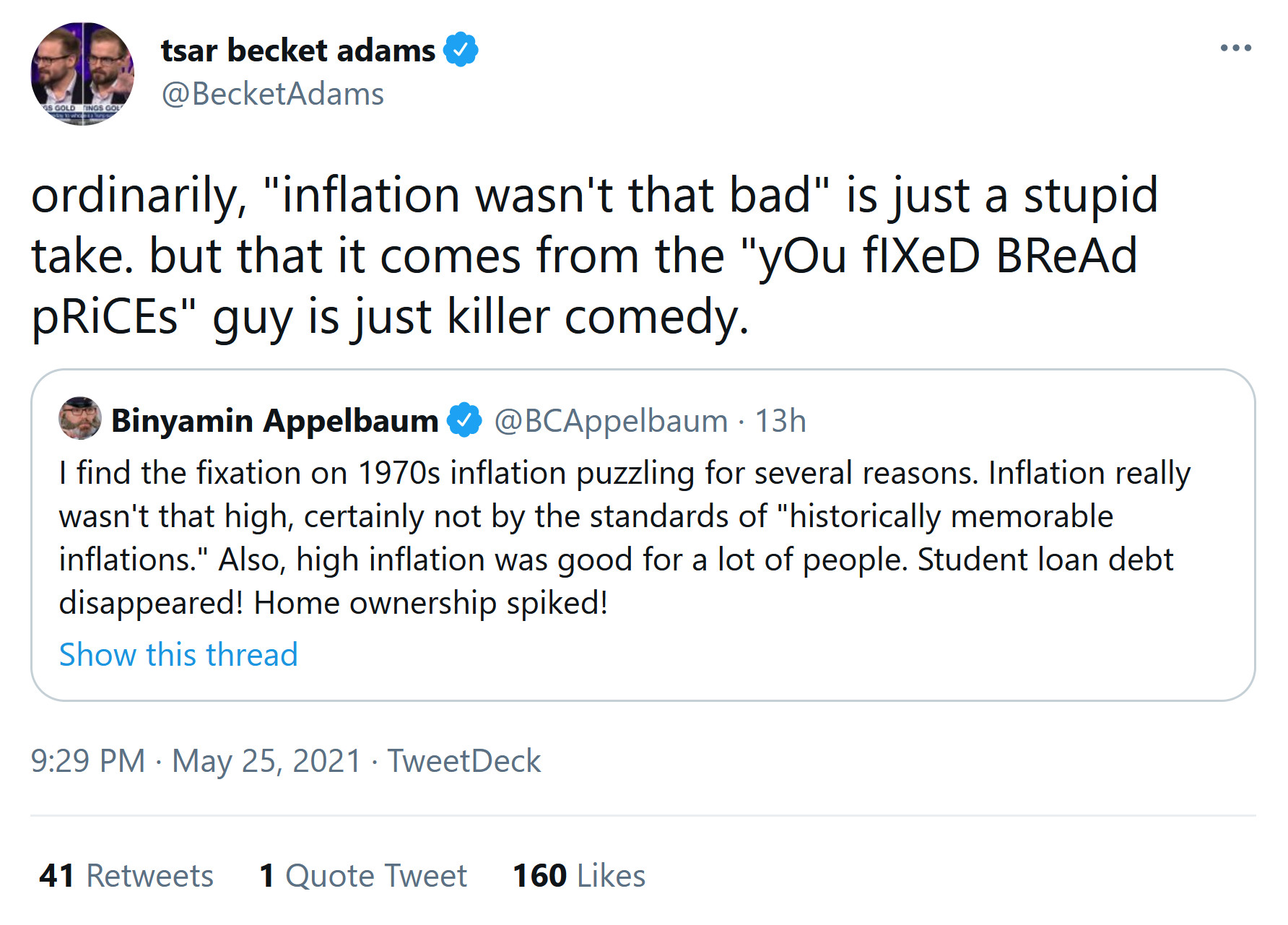TIMESMAN TAKEN ABACK:

Here’s a piece that could help: Why Inflation Matters.
Inflation also erodes the value of debt. That erosion is great for people with a fixed-rate mortgage, but bad for lenders. So when inflation goes up, lenders charge higher interest rates on everything from bonds and mortgages to car loans. Interest rates rise not only to compensate investors for inflation but also to account for the risks associated with an uncertain inflationary environment. Even the threat of high inflation can cause rates to increase, making investment more expensive and less appealing.
Inflation also imposes costs for consumers: just ask anyone who lived and shopped in the 1970s, when prices quickly outpaced their paychecks. And not everyone experiences inflation the same way. It has become popular to argue that tolerating higher inflation will boost low-skill employment and wages, but the supposed beneficiaries are the same people most hurt by rising prices. Someone on a fixed income, perhaps retired with a pension, will get poorer each year. A low-skill worker with less market power will be less likely to get a raise to keep up with inflation. Low earners are also less likely to have money invested in assets, like stocks, that offer inflation protection; they spend more of their income on goods—oil, food, housing, and health care—that are susceptible to high inflation.
We still don’t know what the latest burst of inflation means. It could be transitory, mostly a result of the end of the pandemic. It could also soon make people under 40 learn why their elders are so worried. In any case, loose Fed policy that courts high inflation won’t be cost-free.

No comments:
Post a Comment